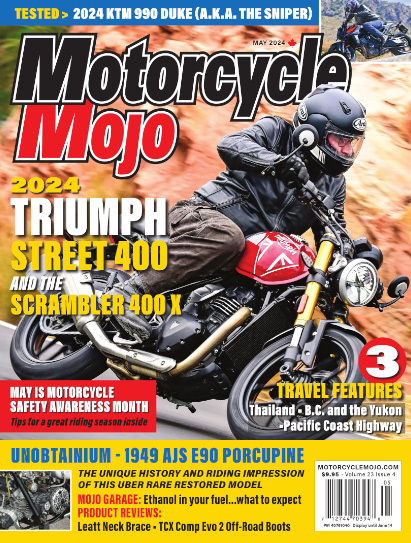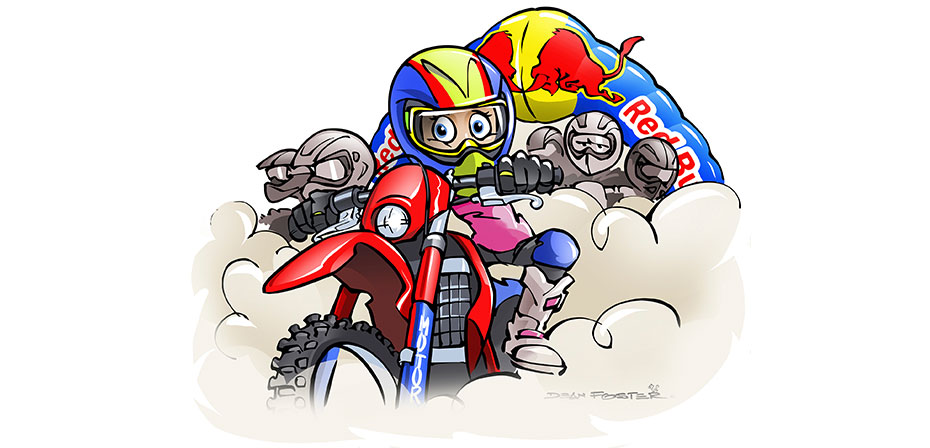Last summer I decided to start off-road racing. Growing up, I had always wanted to race, but as I got older, the desire I had to race turned, in a sense, into fear of having my riding ability defined and ranked by others. I knew I had well-rounded riding skills, but I became so worried about what others would think of my ability. So the thought festered over time, but last summer, I felt I had to face it head-on and put myself in a position to overcome my fear.
I entered and raced in three competitions in total last year: two enduro races and one observed trials competition. I wasn’t too sure what to expect, but figured I had to start somewhere. With many races being cancelled, I finally found one that was certainly happening so I signed myself up. Little did I know I had accidentally entered into the most challenging enduro in Canada: the Red Bull Outliers race. I failed miserably — or at least that’s how I felt when I, like many others, couldn’t even complete one lap of the course. But it was, after all, a Red Bull Hard Enduro.
Next was the observed trials competition put on in Revelstoke, B.C., with the help of Outlaw Dave Rhodes. Trials is much more of a thinking sport, and being focused to stay on your line without a “dab” is the key. I seemed to forget this fundamental rule as soon as the Trial had started. It’s incredibly methodical and offers a different kind of riding that’s not at all speed-based. Again, I had a less-than-fantastic outcome, ending up last in the whole competition.
The week after, I entered myself into another enduro race a few hours south in Castlegar, aptly named the Tree Hugger race. And who would’ve guessed I ended up getting third in my class … out of three riders. They say that a pattern can be determined by as little as three points, and if that’s the case, my pattern was created: to come in last — or as close to last as possible.
I had gone into these races not quite knowing what to expect, and I would think about all the possible outcomes the night before. I thought perhaps I could win, but would likely get hurt before doing well. Maybe I’d surprise myself. I would then realize that none of it would matter if I wasn’t having fun.
All right, so my first attempt at racing was by no means putting me on a fast track to become the next Szoke, Duhamel or Duff, but it did put a few things into perspective. The first perspective I gained was that I have a lot more to learn about technical riding. I’ve always thought I was a good rider, but realizing in a more specific sense what I need to work on to become great was humbling and rewarding. Another pleasant surprise was meeting several new and amazing riders that I otherwise may have never met. After just these three events, my riding community had grown immensely.
I also learned that being a good rider and a good racer are two completely different things. As I was bar to bar with other riders trying to battle through single track, I found myself losing far too much energy because of the adrenaline high I was experiencing from the completely new and overwhelming experience. To race, you have to train yourself to stay calm, focused and aggressive throughout your riding. I experienced this issue a few times; once, it led to me being knocked out of the lead by a crash that was avoidable, since it was caused only by my lack of focus and immense arm pump.
The last and perhaps most important thing I learned is that it’s okay to not do as well as you expected at something. We all must start somewhere, and my starting point might be someone else’s end goal. The failure that I perceived from my experience wasn’t a failure at all. It was success — not the type of success I had hoped for, but success nonetheless. I had beat the barriers built up in my mind about racing, I had pinpointed aspects of my riding to improve on, I challenged my riding abilities, and I had persevered.
At the end of the last race I felt accomplished, I had abolished my fear of ranking my skills and had found comfort in seeing my progress. I finally accomplished one of my childhood dreams. Even after falling, again and again, all I had to do was pick the bike up again. So I’d start the bike, throw my leg over, till I fell again — and then repeat the process. It had almost become routine and efficient. Through my failure, I found success.










